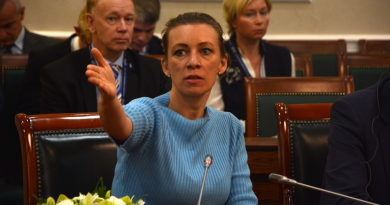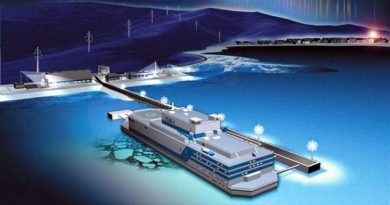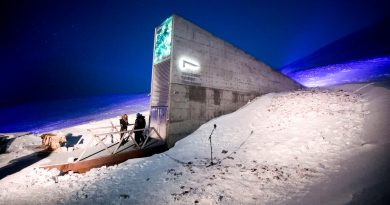Nunavut signs devolution agreement-in-principle with Canada, Inuit organization
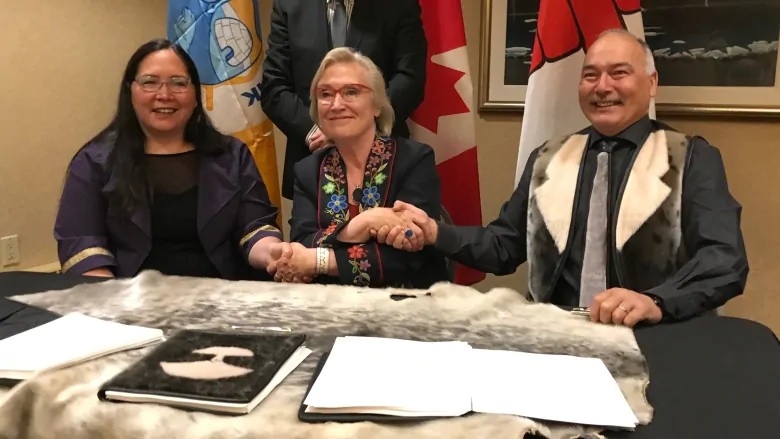
Nunavut has reached an agreement-in-principle on devolution with the government of Canada and the territorial Inuit organization.
Canada’s Crown-Indigenous Relations Minister Carolyn Bennett signed the agreement Thursday along with Nunavut’s Premier Joe Savikataaq and Nunavut Tunngavik’s president Aluki Kotierk.
The agreement is not legally binding, but signifies that all the major issues have been settled between the three parties.
Now comes the actual process of doing what was agreed to, with a final agreement expected within three years and the rubber-stamped handover expected within five years.
Devolution has been a long process. Canada began ceding decision-making control of areas of government, like health or airports, to the territories in the 1960s.
The final area to be negotiated was land and water management, which covers resource development. That process began in Nunavut in 2008.
The main issue left outstanding after the final agreement five years from now will be offshore and seabed management for projects like oil and gas development.
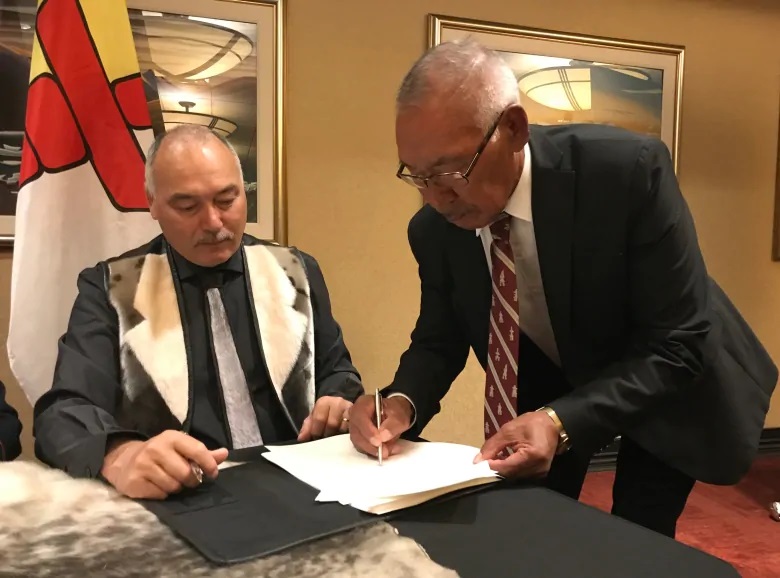
How will the transfer happen?
Transferring responsibility for land and water means the government of Nunavut will come to be responsible for Crown lands within the territory.
Simon Awa, the chief negotiator for Nunavut, says contaminated sites will be an exception to the Crown lands transfer — the government of Canada will have to clean them up before handing the responsibility over.
As the land is currently managed by government of Canada employees in Nunavut, those jobs will become government of Nunavut jobs.
“We are talking about the actual human beings. They need to be respected and their wishes [honoured]. So it’s kind of a sensitive area that took a while to negotiate,” Awa said.
The employees will be given the option to follow their job to the government of Nunavut or be transferred to another post within the federal government, Awa said.
Nunavut is the last territory to have responsibility for land devolved. Yukon gained control of its land and water in 2003, and the Northwest Territories got those authorities in 2014.
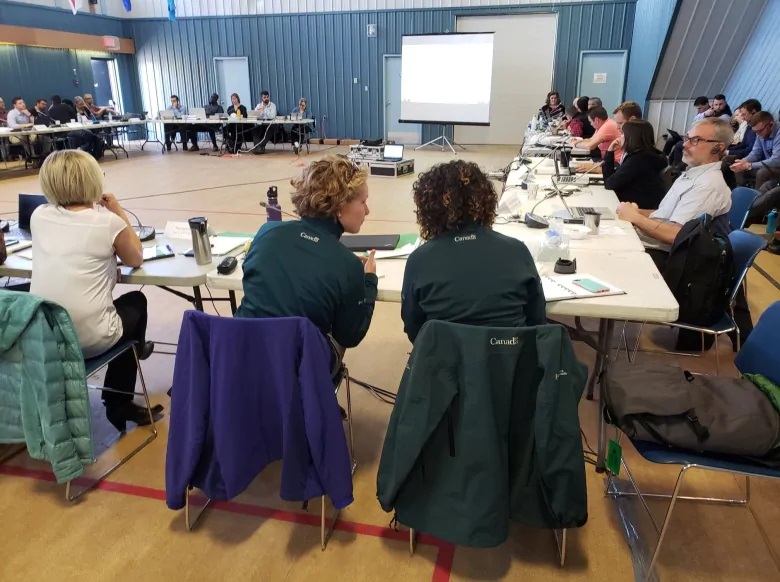
Nunavut Tunngavik is the Inuit organization that manages the agreement that created Nunavut. In the negotiations, it pushed to have a representative Inuit workforce post-devolution.
The agreement includes that requirement.
In the next six months a human resources plan will be developed to help the government of Nunavut “maximize Inuit employment … while ensuring the [government of Nunavut] will have the necessary human resources capacity” to take on the responsibilities.
“I hope that’s another push to the government [of Nunavut] to ensure that they actually live up to and implement Article 23, which Inuit have been expecting since Nunavut was created,” Kotierk said.
Resource management
In order to take over managing land, water and resources, Nunavut will need to “mirror” all the federal legislation that currently governs the resources.
Nunavut’s resource management processes — including the Nunavut Impact Assessment Board (NIRB) — will remain much the same, but it will use Nunavut versions of all the federal legislation.
What will change is who has final say. At the moment, Canada’s minister of Northern Affairs has responsibility for Crown lands, and therefore final sign-off on projects on that land.
It’s likely the responsible minister after devolution will be a territorial minister, though the makeup of the impact review board will still have members appointed by the federal government, according to the NIRB.
Some projects, like those involving fisheries, will continue to require federal approval as the responsibility for fisheries lies with the federal government across Canada.
Related stories from around the North:
Canada: MLAs in Canada’s Northwest Territories approve updates to decades-old oil ans gas laws, CBC News
Finland: Citizens’ initiative to reform mining law heads to Finnish Parliament, Yle News
Norway: “The ‘Smart Arctic’ is Indigenous,” Saami leader tells Arctic Frontiers, The Independent Barents Observer
United States: Alaska governor cites public response in veto reversals, Alaska Public Media

